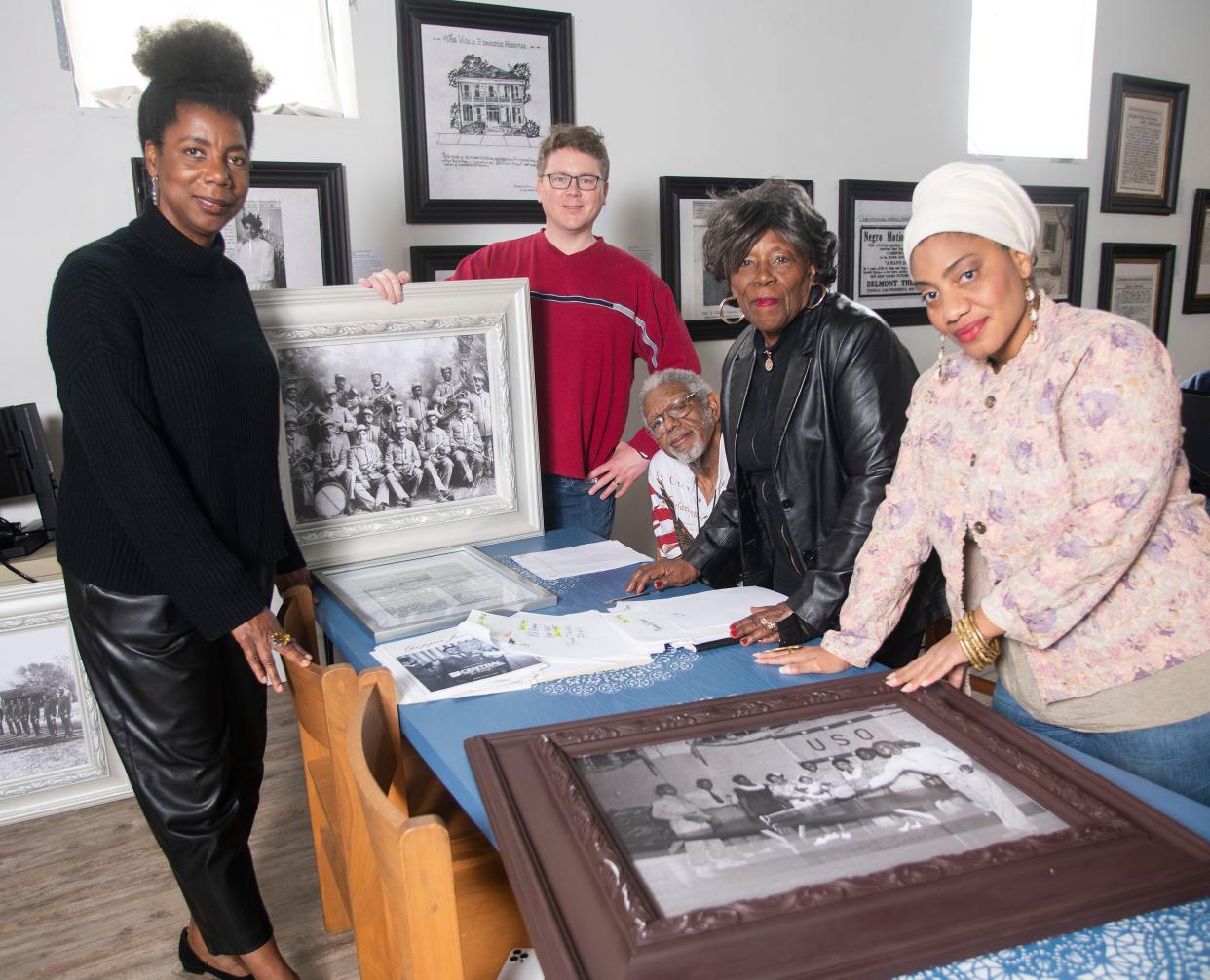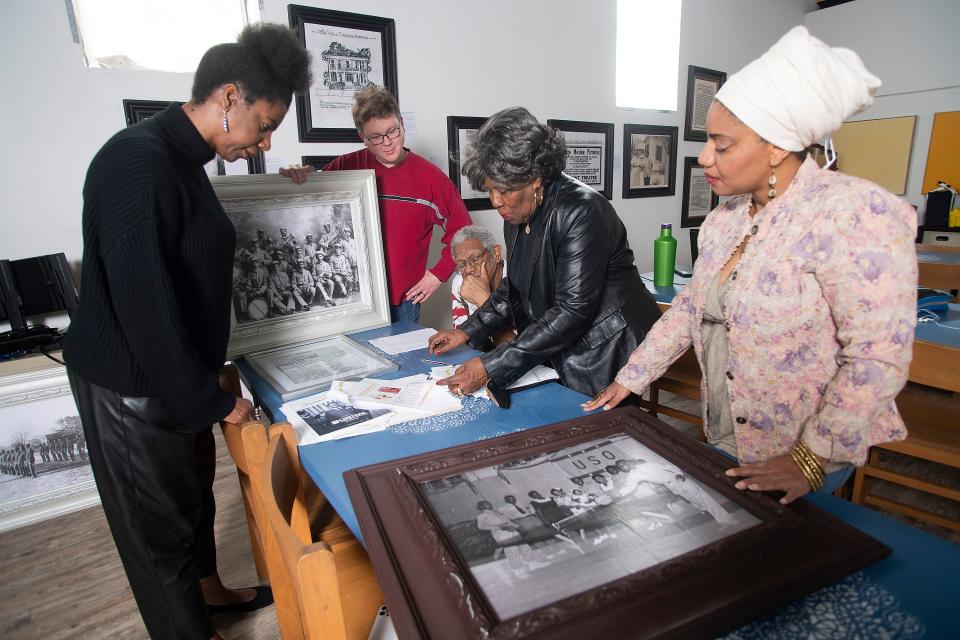Their history wasn't just forgotten, it was buried. Today we tell their stories.

For decades the role of many of Pensacola's citizens have only been told through the families whose ancestors helped shape who we are today.
Schools, museums and roads bear their names — acts that came about generations after they had passed — a late but still honorable effort to recognize the impact these once marginalized men and women had on the community. Their history is not easy to find, an all too common tragedy that played out across the United States in newspapers, archives and public records.
Their obituaries, long the place researchers could traditionally find a goldmine of information on the past, are non-existent or sparse. Their stories have been hidden.
Today we begin to tell their stories - the way they should have been told 100 years ago.
Museum opens:Belmont-DeVilliers history museum opening to celebrate local African-American culture
More: Pensacola nonprofit plans to illuminate local Black history
"Regardless of your ethnicity or your background, it's all valuable, it's all necessary, it's all needed because these stories are important," said Robin Reshard, one of the community members leading an effort to write the obituaries of men and woman of Pensacola's past, publishing them near the anniversaries of their death.
"It's important to share the stories and (not just) the fact that they were born and they died, but that their spirit continues in so many different ways and in different people."
Righting the past
The idea for the project came from Councilwoman Teniadé Broughton who was inspired by the Overlooked series in the New York Times — a series of obituaries about remarkable people whose deaths, beginning in 1851, went unreported.
Broughton wanted to add more breadth and thought into Pensacola’s own past, particularly the experiences of the people who walked, lived and made an impact in this community.
Righting the past: War veteran and prominent citizen, John Sunday is dead at 86
To understand Pensacola and where we are today, it is vital to move away from the "old, dead, white men" philosophy, a popular term describing how the study of philosophy in academia is dominated by deceased European men. To do so, there needs to be an intentional push to include people of color and women to open up different perspectives, histories, meanings and stories, she said.
“We were always very diverse, so we should make sure to present that in our storytelling,” Broughton said. “And I think now we've gotten better at that, more willing to look at different groups because we stand on this foundation of telling one side of the story. I think it also lends to revisiting how our history has been told, to make way for how we plan to tell it in the future.”
The obituaries, which will be published throughout 2023 in the Pensacola News Journal, will be written by community members with expertise and sometimes personal knowledge on the person in question.
The difficulty in getting information on their background illustrates the need for the project, as even photographs of many of the people who will be featured don't exist today.
Whose stories will be told?
The obituaries will include prominent figures such as John Sunday and Spencer Bibbs, as well as lesser known people such as Lillie Ann James, the mother of Daniel “Chappie” James Jr. − the first Black four-star general in any U.S. military service branch.
It will include the unburied story of Viola Edwards, who ran the first Black-owned hospital in Pensacola from 1922 to 1927. The Viola Edwards Hospital was burned down after she was accused of killing a pregnant white woman.
The project will also include a number of people who lived everyday lives such as Ezra Gerry.
Gerry, a Milton steward and cook, was one of the nearly 150 people killed in the Larchmont Disaster, which is considered the Titanic of Rhode Island. We only know of his death because of a small mention in a newspaper article that focused on a pastor defending the captain of the boat.
Gerry's family was not able to transport his body back to the area and he is buried in Providence, Rhode Island. His family's grief is just a footnote in the article.
Group fundraising for monument after Gen. Daniel 'Chappie' James Jr. Bridge gets official OK
A black laundress was the first to live in 1890 home, those who restored it wanted to know more
Jamin Wells, associate professor and director of the Public History Master's Program at the University of West Florida, believes that telling these stories today can highlight the richness of the Pensacola community, honor the legacies of these families and their communities, and humanize the people of the past and how they connect with us to the present.
“This has always been a really complicated place, and (we want) to try to learn more about how the city in this community came to be and came to look the way it does today,” Wells said. “We're going to try to include avenues for folks to want to learn more about these people. And there's a number of historical societies and cultural groups who hopefully will be contributing biographies and are great resources for learning more. Hopefully the past isn't just the past − that it really shapes our world today to see those connections.”
Local historian Marion Williams plans to write about his ancestor Spencer Bibbs who has an elementary school named after him. Williams has dug deep into finding more information about Bibbs, which he has learned from his family and his own research.
Bibbs was the first African American Supervisor of Colored Schools in Escambia County. He requested and was granted a school on the east side of Pensacola − P.S. #44 − which later was renamed P.S. #102. After his death in 1922, his daughter, who worked at the school, petitioned for the school to be named after him.
Bibbs was not only a supervisor but an entrepreneur who co-owned a restaurant with his wife. He also worked as what we think of now as a taxi driver, using his horse and buggy to "drive" people across the city.
Williams wants to help solve the question as to why certain people have been honored or how others who went unnoticed helped shape our community. A project like this will help the community understand these outstanding characters and how they affect the people who call Pensacola their home today.
“It's a good way to kind of update our information and to have information available for people who are coming behind you, and people around you to know who these people were, and you know, how they impacted our lives,” Williams said.


This article originally appeared on Pensacola News Journal: Obituary project will recognize Pensacola prominent figures from past

